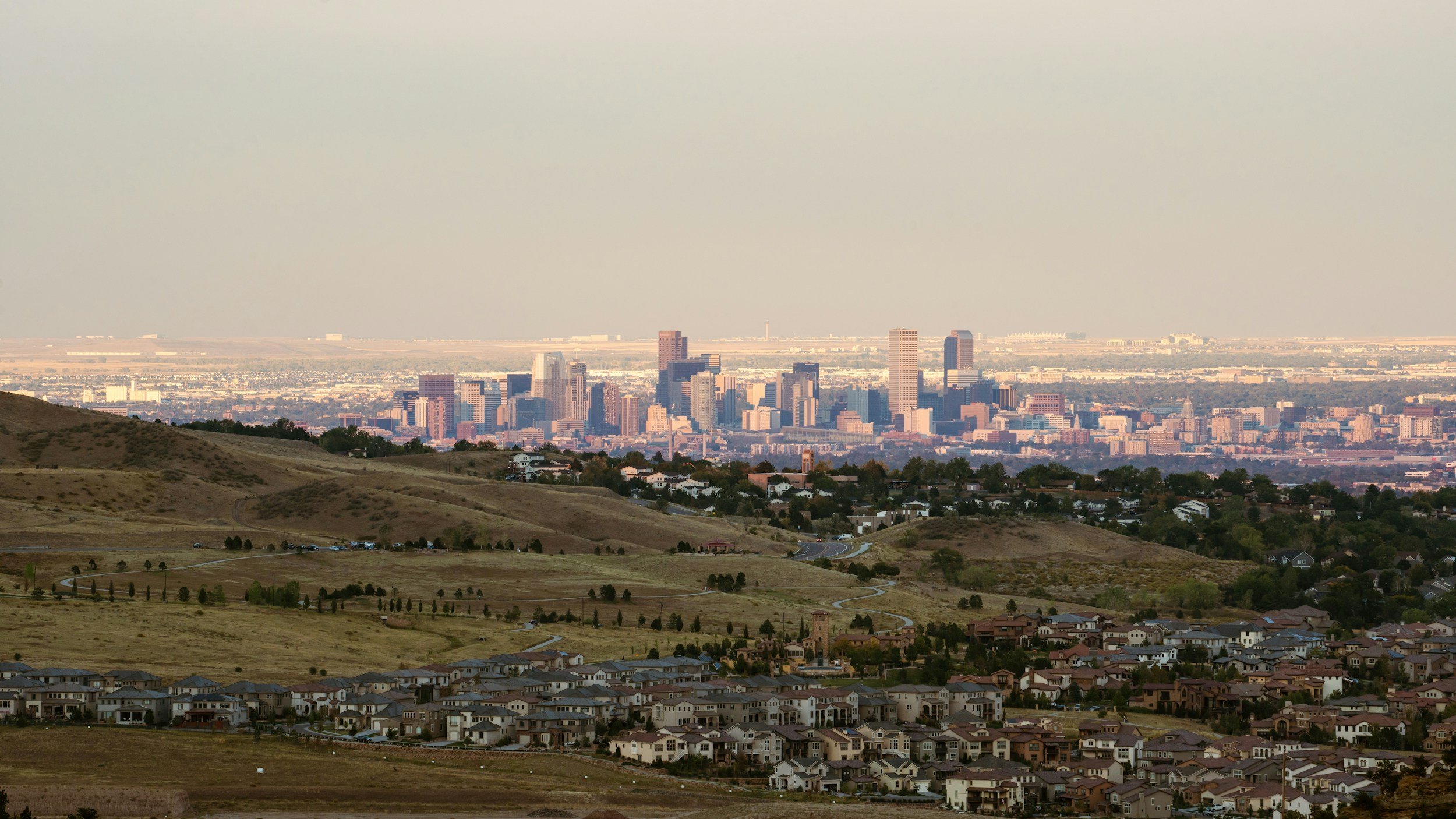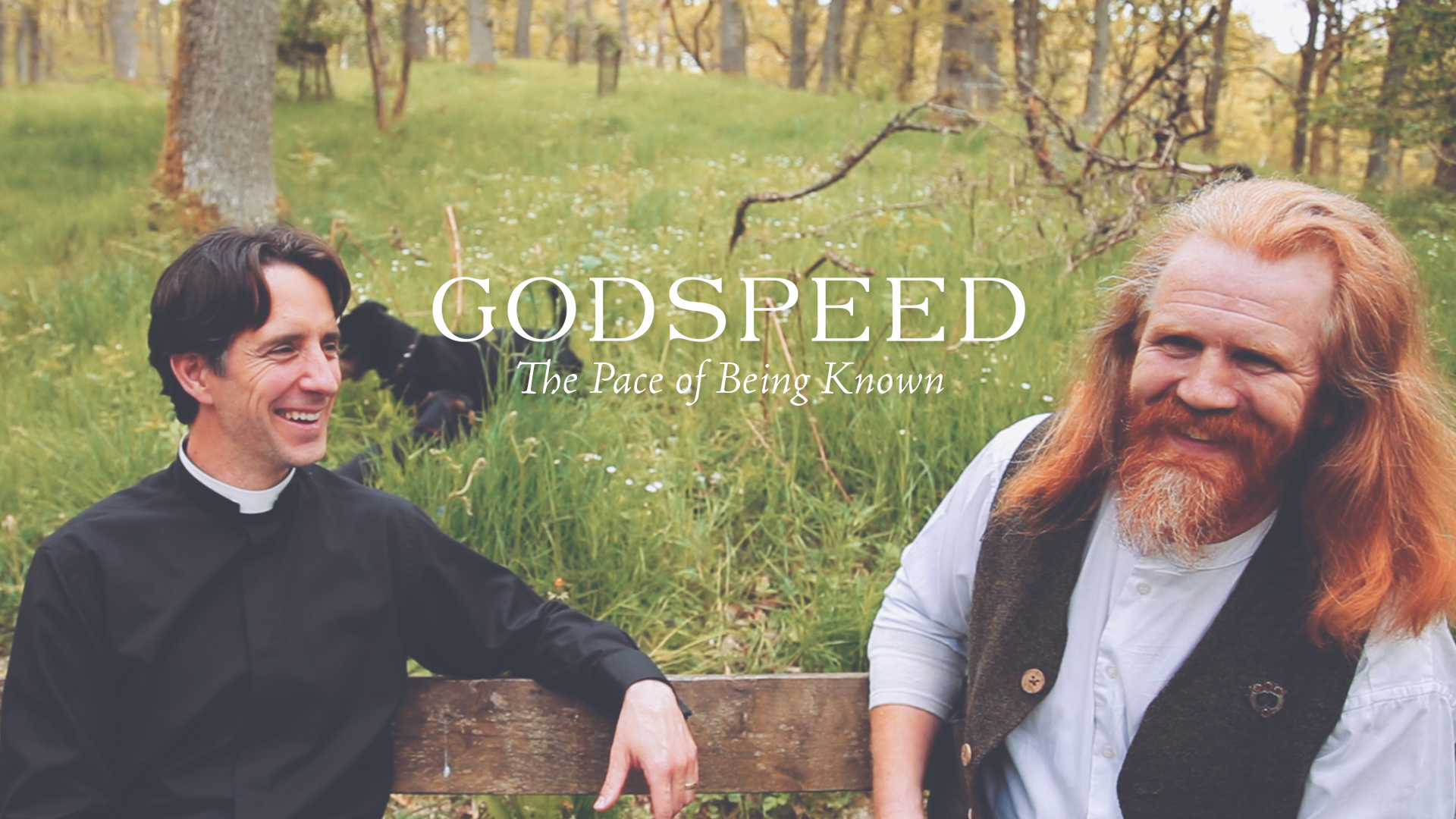SEASONS | RESOURCES
Summer
As the heat rises and time stretches, may this summer season draw you closer to the Spirit, your neighbors, and the place you call home. May you be present to all it holds—the beauty, the tension, the slow unfolding of transformation.
“We must practice the presence of God... He is with us in our kitchens, at our tables, on our breadlines, with our visitors, on our farms. When we pray for our material needs, it brings us close to his humanity. He, too, needed food and shelter; he, too, warmed his hands at a fire and lay down in a boat to sleep.”
ABOUT THE SEASON
Summer is a season of wide-open days and slowed-down rhythms. The school year ends, the sun lingers longer, and our routines loosen. And yet, this stretch of Ordinary Time—beginning with Pentecost and moving through the heart of summer—is anything but ordinary. It’s a time to remember that the Spirit of God moves not just in sanctuaries, but in sidewalks, front yards, city parks, and porch conversations.
This season invites us to tune our faith to the hum of our neighborhood: the laughter of children, the hum of lawnmowers, the stillness of early mornings, and the sweat of shared work. Pentecost reminds us that God’s Spirit was poured out not in isolation, but among people gathered in place—diverse, multilingual, and rooted in community. Summer gives us an opportunity to live that out: to become more attentive to our neighbors, more invested in our streets, and more alive to the Spirit already at work around us.
Rhythms
RESOURCES FOR SUMMER
We’ve created a set of rhythms to help you move through summer with intention. Whether you're traveling or staying home, surrounded by people or moving through quiet days, these rhythms are a way to anchor your faith in your actual place.
Prayer for Summer Schedule
Father in Heaven,
Thank You for summer,
Where days feel slower
And yet quickly pass by.
May we discover a pace
Where we do not miss Your Presence
In the warmth and length of this season.
May the irregularity of our schedule:
Unplanned hours with children,
Family and friends who visit
And interrupt our rhythms,
Neighbors who linger
On the front porch and in the front yard,
Friends who remain
Too late in our backyard -
Each be an encounter with
Being the beloved and belonging.
May we calibrate our energy
To give ourselves to both
Good work and good rest.
And in this season experience
Refreshment of our mind and bodies.
May our posture be gratitude
For the vacations, camps, and reunions
Even when they feel exhausting.
May we remember many of our neighbors
Will not have a week away from work.
May our hearts be wise,
Help us number our summers
With our parents and our children,
Our spouses and our siblings,
Your Family and Your friends.
Thank You for summer.
Amen.
Summer Prayers
Practice for Summer |
Ice Cream Social
“You can’t buy happiness, but you can buy ice cream, and that is pretty much the same thing.”
Ice cream is an almost guaranteed way to gather people. There’s a magical connection when people come together to enjoy the endless variations of frozen cream, milk, and sugar. An ice cream social is a sweet, and simple, way to spend time with your neighbors. It can be hosted on the driveway or in the apartment stairwell. Whatever the location, there is something universal about an ice cream social bringing people together.
Emily and Matt Duntsch have been hosting an ice cream social for their neighbors for the last 5 years. It is always on the Friday that begins Memorial Day weekend. It is a memorable way to mark the beginning of summer. It’s simplicity that makes an ice cream social successful from Emily’s perspective. “Less is more. Set a table up. Put out some ice cream, and invite everyone to bring toppings.” “And,” she adds with a smile, “have your kid make the flyer.”
Emily and Matt discovered having neighbors gather on their driveway each year for an ice cream social was a way to reconnect with those who they have not seen because of full school schedules, and make introductions to new neighbors who have recently moved on the block. They rely on neighbors who have come over the years to encourage others to attend. Emily offers a tip, “It helps having it on a long weekend.” The front yard gathering the last weekend of May has become an annual tradition for the homes in Virginia Village on Atlantic Avenue.
There’s an unspoken agreement by all of the children, and most of the parents, there isn’t a limit of ice cream or toppings at this event. It’s a decadent celebration where too many toppings are piled on top of bowls full of frozen flavors. Any ice cream left has melted into a sweet mess by the end of the evening. A brief spray with the garden hose cleans off the table and driveway. The sweet and simple labor of hosting an ice cream social each summer is well worth it for the memories of neighbors being together as twilight slowly departs and summer begins.
Summer Practices
Places for Summer
The summer is a chance to reconnect with the ordinary beauty of our neighborhoods and to notice how the Spirit moves in these familiar streets. When we root ourselves in place, we begin to see it not just as where we live, but as a space where faith takes on flesh.
Summer Places
Summer Reading
RESOURCES FOR SUMMER
Summer invites a different pace. Longer evenings, warmer light, and perhaps a little more margin to slow down and sit with a good book. This season’s reading list is curated to deepen your love for the local, stir your imagination for community, and ground your faith in the soil of the everyday. These books speak to the beauty and complexity of place, the work of neighboring, and the slow transformation that happens when we stay rooted.
-

Uprooted
Grace Olmstead is a journalist who focuses on farming, localism, and family. Her writing has been published in The American Conservative, The Week, The New York Times, The Washington Post, National Review, The Wall Street Journal, and Christianity Today, among others. A native of rural Idaho, she now lives outside of Washington, DC, with her husband and three children.
-

Pilgrim at Tinker Creek
Dillard's personal narrative highlights one year's exploration on foot in the Virginia region through which Tinker Creek runs. In the summer, she stalks muskrats in the creek and contemplates wave mechanics; in the fall, she watches a monarch butterfly migration and dreams of Arctic caribou. She tries to con a coot; she collects pond water and examines it under a microscope. She unties a snake skin, witnesses a flood, and plays King of the Meadow with a field of grasshoppers. The result is an exhilarating tale of nature and its seasons.
-

Jayber Crow
“This is a book about Heaven,” says Jayber Crow, “but I must say too that . . . I have wondered sometimes if it would not finally turn out to be a book about Hell.” It is 1932 and he has returned to his native Port William to become the town's barber.
Orphaned at age ten, Jayber Crow’s acquaintance with loneliness and want have made him a patient observer of the human animal, in both its goodness and frailty.
He began his search as a “pre–ministerial student” at Pigeonville College. There, freedom met with new burdens and a young man needed more than a mirror to find himself. But the beginning of that finding was a short conversation with “Old Grit,” his profound professor of New Testament Greek. -

Hannah Coulter
Hannah Coulter is Wendell Berry’s seventh novel and his first to employ the voice of a woman character in its telling. Hannah, the now–elderly narrator, recounts the love she has for the land and for her community. She remembers each of her two husbands, and all places and community connections threatened by twentieth–century technologies. At risk is the whole culture of family farming, hope redeemed when her wayward and once lost grandson, Virgil, returns to his rural home place to work the farm.
-

A Place on Earth
Published in 1967, we return to Port William during the Second World War to revisit Jayber Crow, the barber, Uncle Stanley, the gravedigger, Jarrat and Burley, the sharecroppers, and Brother Preston, the preacher, as well as Mat Feltner, his wife Margaret, and his daughter–in–law Hannah, whose son will be born after news comes that Hannah’s husband Virgil is missing.
"The earth is the genius of our life,” Wendell Berry writes here. “The final questions and their answers lie serenely coupled in it."
RESOURCES FOR SUMMER
Short Film
We recommend Godspeed because it reflects the heartbeat of Sacred Place: that transformation begins when we slow down, pay attention, and stay rooted. The film is an invitation to reimagine your summer as a season of deep connection with your neighborhood and the people who call it home.
RESOURCE
Godspeed is a 30-minute film that tells the story of a pastor who leaves behind hurry to embrace the pace of community in a small Scottish parish. Through walking the same streets and knowing his neighbors by name, he discovers a faith grounded in place, presence, and relationship.
More rhythms to root your faith in place.





















